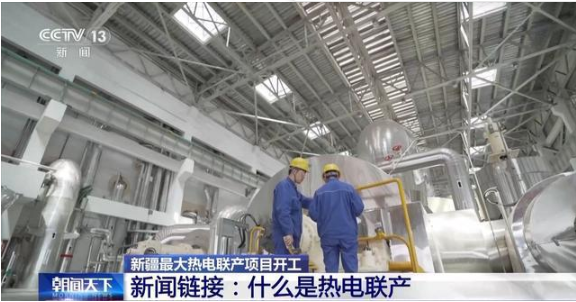Future Health Index 2024 global report: Healthcare leaders turn to AI to address critical gaps in pa

June 18, 2024
- Healthcare leaders indicate automation is crucial in addressing staff shortages, but staff remain skeptical
- Interest in Generative AI grows, with majority of health leaders investing in, or planning to invest in AI technologies to help reduce delays in patient care
Amsterdam, the Netherlands– Royal Philips (NYSE: PHG, AEX: PHIA), a global leader in health technology, today announced the results of its Future Health Index 2024 report: Better care for more people. Launched at HLTH Europe, the ninth annual FHI global report shows that healthcare leaders are turning to virtual care and AI-enabled innovation to address pressure due to workforce shortages, financial burdens, and growing demand.
“Increasingly, we’re seeing long wait times and staff shortages making it difficult for people to get timely access to care when and where needed. The Future Health Index 2024 global findings show health leaders believe these barriers to access to quality care are getting larger,” said Shez Partovi, Chief Innovation & Strategy Officer at Philips. “This year’s report shows how innovations including AI are helping to free up time for staff and reduce wait times for patients. However, as health systems roll out AI tools to save time and reduce barriers to care, it’s critical to bring staff along on the journey to ensure an inclusive AI rollout with patient and clinician experience is at the forefront.”

Staff shortages are taking a heavy toll on healthcare professionals and patients
Almost two-thirds (66%) of healthcare leaders report increased incidence of burnout, stress, and mental health issues in their workforce, deterioration of work-life balance, and/or reduced morale and engagement. Delays in care due to staff shortages are an issue for more than three in four healthcare leaders (77%) – causing concerns about increased waiting lists for appointments (60%), longer waiting times for treatments or procedures (57%), or delayed or limited access to screening, diagnosis, and preventive care (54%).
"The results of the FHI Report and the 3 critical gaps identified align perfectly with the challenges I face in my clinical practice each day. The staffing gap is the most concerning aspect as it has a direct negative impact on patient care. As health leaders, we need to focus on increasing the adoption of digital technologies to improve efficiency and reduce the workload, but not without engaging with healthcare staff to ensure adoption of these technologies is embraced,” said Prof. Dr. Chiara Bucciarelli-Ducci, cardiologist and CEO of the Society for Cardiovascular Magnetic Resonance (SCMR), London, UK.
Automation can help ease the burden on staff
Most healthcare leaders (92%) agree that using technology to automate repetitive tasks or processes is critical for addressing staff shortages in healthcare. However, nearly two-thirds (65%) say healthcare professionals are skeptical about its use. Concerns were raised around automation and quality assurance and the potential for overreliance on automation leading to staff losing essential skills and knowledge. Today, automation mainly reduces the administrative burden; however, two in five (41%) healthcare leaders plan to implement it for workflow prioritization.
Virtual care may also help bridge the staffing gap, with 89% of leaders already seeing a positive impact of virtual care in easing shortages. Leaders also see benefits for staff satisfaction with more than half (54%) saying virtual care enables more flexible work schedules and creates new career options for healthcare professionals.
Patients also benefit from remote monitoring which can offer more positive experiences while reducing the strain on overstretched hospital staff. Leaders see a bigger role for remote patient monitoring in the future and are planning an expansion into areas such as telestroke care (40%), maternal and fetal health (36%), and postoperative monitoring (35%) within the next three years.
Health leaders keenly interested in Generative AI
Last year’s report showed leaders were planning investments in AI; however, the FHI 2024 results show AI for clinical decision support is already being leveraged for in-hospital patient monitoring (43%), with more investments planned in the next three years. Additionally, the majority of leaders (85%) are currently investing in, or planning to invest in, generative AI technologies.
Financial challenges must be addressed through sustainable strategies
The vast majority (81%) of leaders note that financial challenges are having a direct impact on patients. Almost 3 in 5 (59%) are unable to invest in new or more advanced medical equipment or technologies. At the same time, 89% are planning growth strategies to serve more patients or expand services. Additionally, 86% of healthcare leaders also believe that reducing CO2 emissions and the environmental impact of healthcare should be a top priority for healthcare organizations, meaning that any strategies to address financial challenges must be sustainable.
The FHI 2024 report is based on proprietary research among 3,000 healthcare leaders conducted in 14 countries. To access this year’s report, visit Future Health Index 2024.
For further information, please contact:
Kathy O’Reilly
Philips Global External Relations
Tel.: +1 978-221-8919
E-mail: Kathy.OReilly@philips.com
About Royal Philips
Royal Philips (NYSE: PHG, AEX: PHIA) is a leading health technology company focused on improving people's health and well-being through meaningful innovation. Philips’ patient- and people-centric innovation leverages advanced technology and deep clinical and consumer insights to deliver personal health solutions for consumers and professional health solutions for healthcare providers and their patients in the hospital and the home.
Headquartered in the Netherlands, the company is a leader in diagnostic imaging, ultrasound, image-guided therapy, monitoring and enterprise informatics, as well as in personal health. Philips generated 2023 sales of EUR 18.2 billion and employs approximately 69,100 employees with sales and services in more than 100 countries. News about Philips can be found at www.philips.com/newscenter.
- “创新花”结“发展果” 长虹美菱一季度净利同比增加26.93%
- 画家吕薇的墨韵国风,极致之美
- 专家认证黑咖有助运动提升,雀巢黑咖全力开“黑”匹配多元需求
- 2024年6月8日:极工度玩公司全球首发“竞技智慧,渔护海洋”竞渔棋,世界海洋日直播发布会圆满落幕
- Philips Respironics reaches agreement with US government on a consent decree creating a clear path f
- SLB获得Petrobras的Buzios油田的三份完井合同
- 涵容气象·笔墨留芳——书画名家张国富百家媒体聚焦报道
- Introducing the Cavli C17QS: Harnessing the power of Low Power Cat 1bis technology with integrated S
- 亮剑虚假诉讼 筑牢司法诚信 全省首部打击虚假诉讼主题微电影《明鉴》上线!
- 光大环境以创新驱动转型高质量发展
- 采用芯原NPU IP的AI类芯片已在全球出货超过1亿颗
- 首届低空产业创新发展大会开幕 国产双尾蝎D大型无人机精彩表演
- 第一届“泉水杯”济南市大学生电子竞技大赛成功举办
- 钱大妈荣获CIC灼识咨询“社区生鲜连锁第一品牌”市场地位认证
- 京东物流全流程专业保障 连续三年助力宿迁马拉松顺利完赛
- “世界商圈”新春开市营业,义乌国际商贸城喜迎全球客商
- 任嘉伦《烈焰》热血开播 “王子复仇记”拉开帷幕
- 创新打造新质生产力,血液净化龙头山外山获得行业专家高度认可!
- 欧孚气吹微缆厂家是如何控制摩擦系数的呢?3
- 医生,搞错了吧,我才30多岁,怎么会得这个“老年病”?——福州爱尔眼科
- 诠释国风时尚,西部数据推出闪迪移动固态硬盘国潮风物版
- 布局高端平嵌冰箱市场 容声发布560WILL养鲜平嵌冰箱
- 创新大赛专访丨爱信客荣膺2023年度人力资源管理培训与开发标杆品牌:“系统+生态+服务”,致力打造数字化人才运营平台
- 【望京之星】望京Citywalk 走进大自然的朋友圈
- 常州炬明反光材料:关于路标反光膜在城市规划中的应用前景
- HWP企业家女性占比超七成,泰康为女性搭建事业新舞台
- 齐一影视公司简介
- Tealium’s Digital Velocity conferences return globally
- 再获嘉奖,人气爆棚!2024SNEC 汇耀品尚能源科技柔性光伏支架大放异彩
- 2024年不允许还有美容院不知道巨爱巨美的生物共振舱?
推荐
-
 王自如被强制执行3383万
据中国执行信息公开网消息,近期,王自如新增一
资讯
王自如被强制执行3383万
据中国执行信息公开网消息,近期,王自如新增一
资讯
-
 男子“机闹”后航班取消,同机旅客准备集体起诉
1月4日,一男子大闹飞机致航班取消的新闻登上
资讯
男子“机闹”后航班取消,同机旅客准备集体起诉
1月4日,一男子大闹飞机致航班取消的新闻登上
资讯
-
 产业数字化 为何需要一朵实体云?
改革开放前,国内供应链主要依靠指标拉动,其逻
资讯
产业数字化 为何需要一朵实体云?
改革开放前,国内供应链主要依靠指标拉动,其逻
资讯
-
 私域反哺公域一周带火一家店!
三四线城市奶茶品牌茶尖尖两年时间做到GMV
资讯
私域反哺公域一周带火一家店!
三四线城市奶茶品牌茶尖尖两年时间做到GMV
资讯
-
 国足13次出战亚洲杯首次小组赛0进球
北京时间1月23日消息,2023亚洲杯小组
资讯
国足13次出战亚洲杯首次小组赛0进球
北京时间1月23日消息,2023亚洲杯小组
资讯
-
 中国减排方案比西方更有优势
如今,人为造成的全球变暖是每个人都关注的问
资讯
中国减排方案比西方更有优势
如今,人为造成的全球变暖是每个人都关注的问
资讯
-
 新增供热能力3200万平方米 新疆最大热电联产项目开工
昨天(26日),新疆最大的热电联产项目—&md
资讯
新增供热能力3200万平方米 新疆最大热电联产项目开工
昨天(26日),新疆最大的热电联产项目—&md
资讯
-
 一个“江浙沪人家的孩子已经不卷学习了”的新闻引发议论纷纷
星标★
来源:桌子的生活观(ID:zzdshg)
没
资讯
一个“江浙沪人家的孩子已经不卷学习了”的新闻引发议论纷纷
星标★
来源:桌子的生活观(ID:zzdshg)
没
资讯
-
 大家一起关注新疆乌什7.1级地震救援见闻
看到热气腾腾的抓饭马上就要出锅、村里大家
资讯
大家一起关注新疆乌什7.1级地震救援见闻
看到热气腾腾的抓饭马上就要出锅、村里大家
资讯
-
 奥运冠军刘翔更新社交账号晒出近照 时隔473天更新动态!
2月20日凌晨2点,奥运冠军刘翔更新社交账号晒
资讯
奥运冠军刘翔更新社交账号晒出近照 时隔473天更新动态!
2月20日凌晨2点,奥运冠军刘翔更新社交账号晒
资讯

